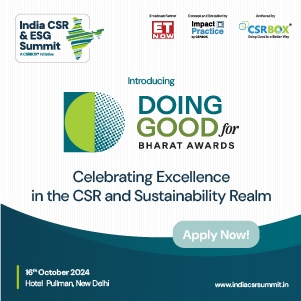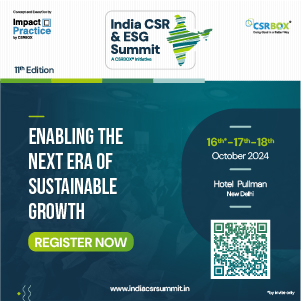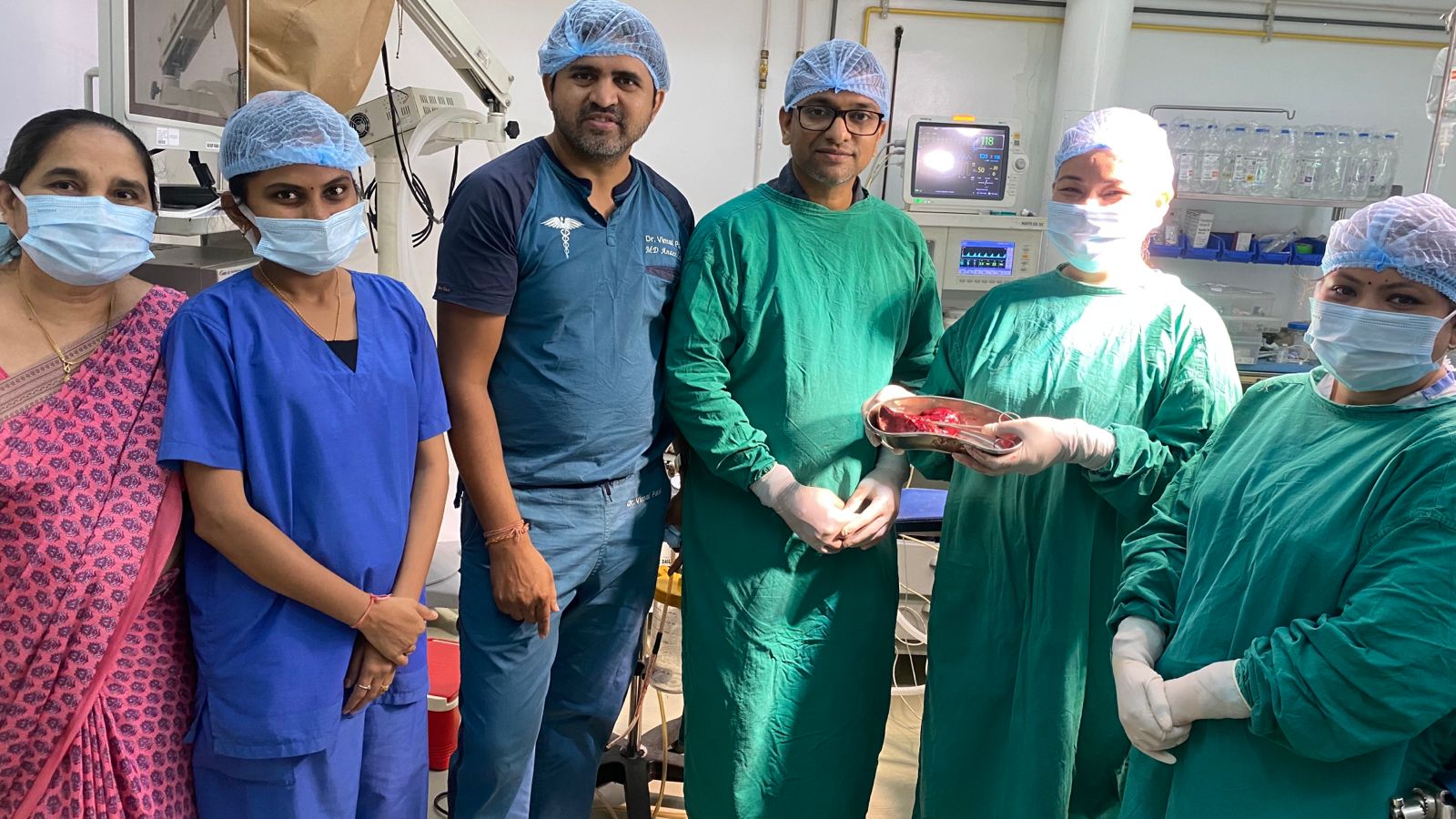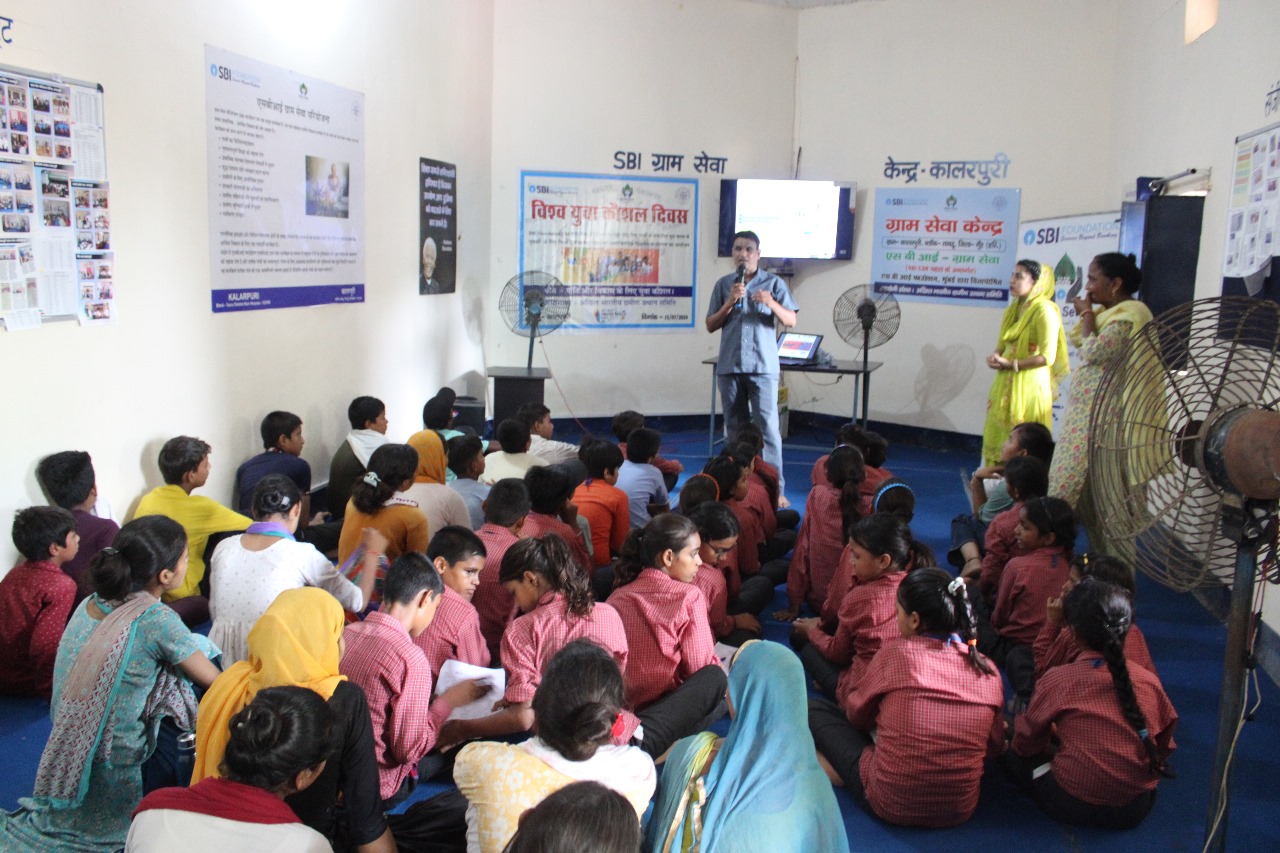Subscribe our Weekly Newsletter
Applications Invited for GEF Small Grants Programme India- Operational Phase 7

Organization: The Energy and Resources Institute (TERI)
Apply By: 10 Aug 2024
Grant Amount: 75000 USD
About the Organization
TERI is an independent, multi-dimensional organization, with expertise in research, policy, consultancy and implementation. TERI is proud to have innovators and agents of change in the energy, environment, climate change and sustainability spheres, having pioneered conversations and action in these areas for over four decades.
About the Grant
The Seventh Operational Phase of the GEF Small Grants Programme in India (https://sgpindia.org/) aims to enable communities and organizations in some of the most vulnerable and least developed areas of India to undertake collective action through a participatory landscape planning and management approach aimed at enhancing socio-ecological resilience through innovative livelihood options producing local and global environmental benefits. SGP is a global project that provides financial support to CBOs, NGOs, and CSOs working specifically in the areas of climate change mitigation, land degradation, and biodiversity conservation.
TERI has been appointed as the National Host Institution for the implementation of the Seventh Operational Phase of the Small Grants Programme in India by the United Nations Development Programme (UNDP) for implementation of the Programme.
One of the key focus under SGP OP 7 is documentation of knowledge from evaluation of the innovative experience at the grass roots. Governments, inter-governmental entities, and development groups are progressively transforming from traditional problem-solving methods to novel, innovative, and multifaceted strategies and tools. An example of such a strategy is the Social Innovation Platform (SIP), designed to address intricate development issues on a subnational scale. SIP employs a blend of inventive techniques and methodologies centered on participatory and inclusive portfolio creation. These encompass Systems Mapping, Deep Listening, Sensemaking, Co-production, and portfolio logic, all working together to design interventions alongside communities and stakeholders collaboratively. The SIP approach is intended to create systemic changes in social and economic domains at the sub-national/local level and to support portfolios of integrated development solutions rather than traditional linear projects. It was developed by Agirre Lehendakaria Center (ALC) and has been tested and iterated by UNDP in Asia and the Pacific region. Two integral components of SIP are the 'Deep Listening' and 'Sensemaking', which focus on capturing and interpreting community perceptions, behaviors and insights, to co-create a portfolio of interventions that are human-centric and catalyze systemic shifts. Essentially, 'Deep Listening' is a set of qualitative tools (ethnographic research, surveys, focus groups, in-depth interviews, observations, etc.) that, together with quantitative data, can reveal the in-depth needs, challenges, and opportunities facing local communities.
Earlier experimentations of Deep Listening have shown the following key benefits:
- The strengthening of inter- and intra-community trust.
- Build adaptive capabilities in contexts of rapid change, crises, and emergent opportunities based on community needs and aspirations.
- Create a safe space for experimentation, imagination, and better collective action.
- Adding value to other UNDP strategic processes or projects in ways that become adaptative in a continually changing context and scalable to different levels of interventions and contexts.
With this background, GEF-SGP India, OP 7 seeks the services of a national level nongovernmental organization (NGO) to adopt the SIP approach and build a knowledge management strategy to facilitate collecting, extracting, and analysing community narratives under the project domain and to foster knowledge management of community narratives. Additionally, the organization will formulate a communication strategy to enhance networking and knowledge sharing among SGP grantees alongside other Civil Society Organizations (CSOs), stakeholders, and the general public. This strategy should be created such that it fosters replication and scaling up of projects and exemplary methods while concurrently reinforcing the ability of civil society to influence policy development processes by engaging in events that captivate the interests of influential figures and institutions.
Objective of the Assignment
Knowledge Management is a crucial activity designed to support networking and knowledge exchange among SGP grantees as well as other CSOs, stakeholders, and the public to promote replication and scaling up of projects and best practices while also strengthening the capacity of civil society to influence policy development processes through participation in events that draw in influential individuals and institutions. The selected organization will be tasked with developing knowledge management and communications strategies. It will also be responsible for ensuring that the priority actions of these strategies are being implemented and lessons and experiences are being shared across the target regions and among other countries, particularly the Upgraded Country Programme countries, where similar integrated landscape approaches are being applied.
The organization should also ensure that the knowledge management strategy links with the Government of India Mission - Unnat Bharat Abhiyaan, which is inspired by the vision of transformational change in rural development processes by leveraging knowledge institutions to help build the architecture of an inclusive India
Eligibility
- Applications are open to any Non-governmental Organizations, Academic and Research Organizations with the ambition to improve policies, programs or learning in the field of environment, climate change, biodiversity conservation and land degradation.
- NGO must be registered as society or trust and also on the DARPAN portal of NITI Aayog and should have a valid unique ID with updated details.
- Organizations can apply in consortium however the lead agency must meet the eligibility criteria on its own.
Organizational Experience
- The organization must have at least 5 years of experience in knowledge management and capacity building in the field of environment, climate change, biodiversity conservation and land degradation.
- The organization or its consortium partners must have presence in the project landscape identified under SGP OP7.
Financial Capacity
- The organization should have an average turnover of not less than INR 1 (one) crore in the last three financial years. (Organizations need to provide audited accounts and Auditor's Report).
Availability of Key Professionals
- The organization must have professionals having adequate experience and expertise in the domain knowledge of this assignment. (Detailed and duly verified CVs of such professionals should be provided)
Competencies
- Demonstrated capacity for fostering a community for managing and sharing their knowledge.
- Proven experience in communication, outreach, knowledge management and in working with community-led initiatives.
- Proven capacity to develop a community 'share and learn' platform.
- Strong presentation and facilitation skills.
- Outstanding ability to craft policy and communication materials that cater to diverse audiences, including civil society members and policymakers.
- Excellent command of both written and spoken English with exceptional writing, presentation, communication, and facilitation skills.
How to Apply
The last date for receiving the Proposals (soft copy and hard copy) is 10 August 2024 upto 1800 hours
- Submission of project proposals, inclusive of a budget and timeline, should be completed and sent to: SGP India Secretariat by 10th August 2024 via email to sgpindia@teri.res.in and hard copy to Small Grants Program Secretariat, The Energy and Resources Institute (TERI), IHC Complex, Lodhi Road, New Delhi - 110003, India.
- The proposal that complies with all the requirements achieves qualifying marks in technical evaluation criteria and offers the best value for money shall be considered for final selection and award of contractual work. Proposals that do not meet the requirements shall be rejected.
- Please be advised that TERI is not bound to accept any proposal, award a contract, or be responsible for any costs associated with preparation and submission of the proposal, regardless of the outcome or the manner of conducting the selection process.
- Applicants will be selected based on the proposals. Shortlisted applicants will be called to make a presentation on their implementation plan.
- The decision on final selection will be taken by the National Steering Committee of SGP-OP7.
For more information please check the Link
Stay in the loop with the newest RFPs and Grants through NGOBOX's WhatsApp Channel. Join now by clicking here!
Latest Online Store
Latest Tenders And EOIs
© Renalysis Consultants Pvt Ltd


























.jpg)
